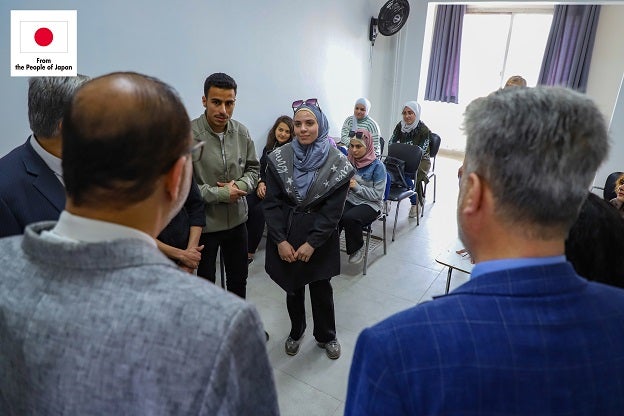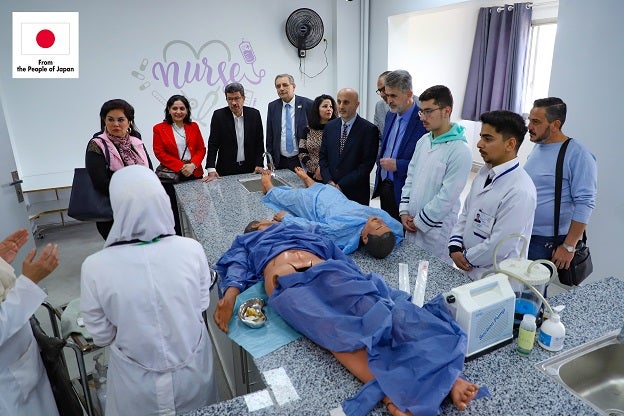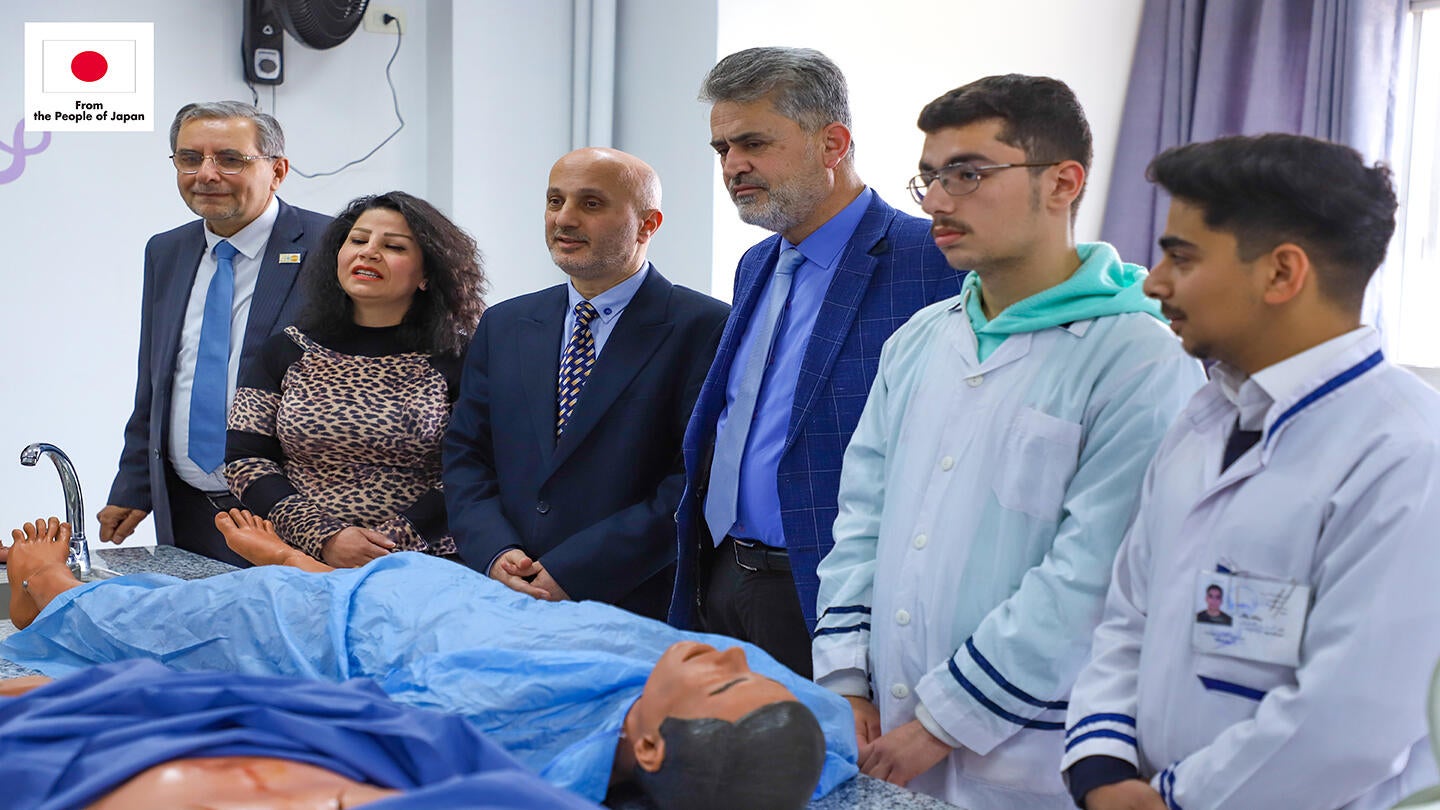Damascus, 10 April 2025 – UNFPA, the United Nations Sexual and Reproductive Health agency, in collaboration with the United Nations Development Programme (UNDP) and the Ministry of Health, marked a key milestone in Syria’s early recovery by inaugurating the renovated midwifery and nursing school in Damascus. The renovation, funded by a generous contribution from the Government of Japan, is part of a broader effort to rebuild critical health infrastructure and strengthen the country’s health workforce. This is an important step in Syria’s path towards universal health coverage.
This initiative is one of two midwifery school rehabilitations supported by UNFPA across Syria — with the Damascus school now complete and another in Lattakia currently underway. With a total contribution of $608,320, the Japanese Government is supporting the renovation of both schools, in addition to training midwives and equipping them with essential simulators to improve the quality of care.

“Our partnership with UNDP and the Ministry of Health in rehabilitating the Midwifery School in Damascus is a key part of UNFPA’s contribution to Syria’s early recovery efforts,” said Muriel Mafico, UNFPA Representative in Syria.
“Midwives play a critical role in saving lives and ensuring the health and well-being of women and newborns. By restoring this essential institution, we are investing not only in rebuilding Syria’s health workforce, but also in strengthening access to life-saving maternal and reproductive health services. This joint UN initiative contributes to a more resilient health sector and supports national efforts toward inclusive and sustainable recovery.” Ms. Mafico, added.
In 2024, with generous support from the Government of Japan, a total of 1,453 health workers received training on sexual and reproductive health and gender-based violence prevention and response . This includes 727 practicing midwives and nurses who benefited from in-service training, as well as 68 students from the midwifery schools who received pre-service training.
With this initiative, UNFPA, national partners and donors are reaffirming their commitment to strengthening Syria’s health system — building skills, restoring hope, and preparing the next generation of health professionals to serve their communities with dignity and care.

Testimony from trainers and students
“We are delivering quality training to students, ensuring that the roles of nurses and midwives are fully complementary to doctors and essential to healthcare delivery.” Intissar Badawi, a trainer at the school.
“This renovation has created a safe and supportive learning environment. We now have the space to grow and gain the knowledge we need — but we still hope for better internet access and more updated teaching methods.” Sharif Suleiman, 19, a student at the school.
“I spend over an hour and a half traveling each day to attend this school. Despite the challenges, my family trusts this place because education is a vital tool for us as young people, especially after 14 years of crisis in Syria.” Hadeel, 21, a student who commutes from rural Damascus daily.
For further information:
Kinda Katranji


